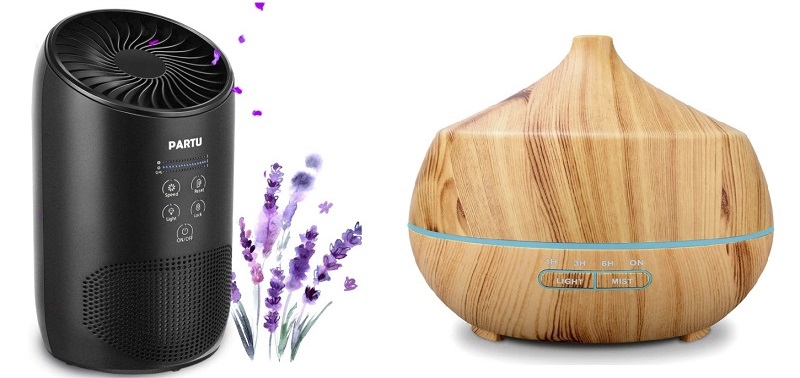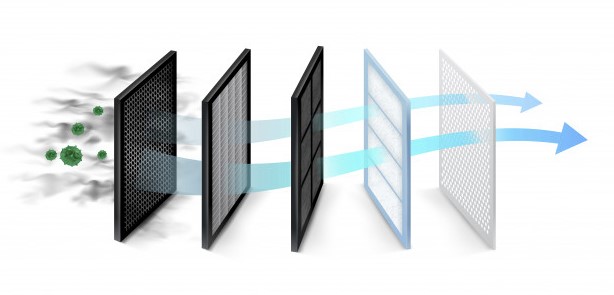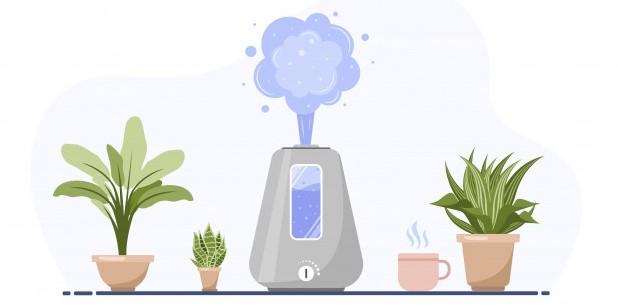Are you looking to improve the air quality in your home? You can consider many options, including two of the best ones at the moment – an air purifier or a diffuser.
Unfortunately, choosing between an air purifier and a diffuser can get confusing, especially when you need only one. Therefore, you need to understand their differences and what each of them can offer.

Below is a detailed looked at both options.
Contents
What is an air purifier?

An air purifier is a device that cleans the air by eliminating airborne pollutants and other microorganisms. These include dander, dust, allergen, mold spores, smoke odor, cooking odors, bacteria, viruses, and more.
How do air purifiers work?
Air purifiers (or cleaners) work by pulling in the air in the room through the use of the fan. The air is then passed through a filter or series of filters, where the pollutants are removed.
The resultant clean air from the air purifier is then circulated back into the room.
Different types of filters are used in air purifiers. The most common ones are mechanical filters, which include:
- Fabric filters: these are usually used for removing large pollutant particles such as dust and dander.
- Activated carbon filters: they trap allergens and pollutants such as dust, lint, mold, pet hair, household chemicals, VOC, and odors.
- HEPA filters: high-efficiency particulate air filters are used to trap small pollutant particles as well as microorganisms. They can eliminate pet allergens, pollen and spores, viruses, mold spores, bacteria, and PM2.5 particles. The H13 HEPA filter is the best filter you can have in an air purifier.
Aside from mechanical filters, air cleaners also make use of electrostatic filters. These filters use static electricity, which charges the airborne pollutants.
As a result, they become attracted to the filter material of the air purifier or other surfaces in your home, for example, furniture.
A purifier can have one filter or a series of filters. Most make use of a three-stage filtration – where it combines a pre-filter, an activated carbon filter, and a HEPA filter.
Some more advanced purifiers can even use four-stage filtration, combining an electrostatic filter.
What is a diffuser?

A diffuser (essential oil diffuser or aromatherapy diffuser) is another device that can help improve your indoor air quality.
However, unlike a purifier, it does so by dispensing essential oils, thus releasing a pleasing scent in your home. This makes the air more pleasant and comfortable to breathe.
How do diffusers work?
Diffusers simply break down the essential oils and disperse them around the home. Depending on the technique used to break down the oils, they can be grouped into:
- Nebulizing diffusers: these make use of an atomizer, which breaks down the essential oils into atoms. They are then released into the air in the form of a mist.
- Heat essential oil diffusers: these make use of a heating mechanism to heat the essential oils. As the oil evaporates, it releases a pleasant aroma.
- Ultrasonic diffusers: they use a vibrating disc, which breaks down the oils into small molecules. These are then mixed with water and carried into the room as a fine mist.
Air purifier vs diffuser – which is the best?
Looking at the workings of an air purifier vs a diffuser, you will find they are very different in how they improve your indoor air. Therefore, your choice between the two will depend on your intended results.
If you are looking to make your indoor air more pleasant – particularly for aromatherapy benefits – you should use a diffuser instead of an air purifier.
How about clearing the air with essential oils? Do diffusers purify the air? Yes, they can.
Some essential oils contain anti-bacterial and anti-microbial properties, which can kill some of the pollutants in the air, making it clean. The act of dispensing essential oil in the air can also get rid of some airborne pollutants.
However, diffusers are not designed specifically for air purification – they just clean the air as an added bonus.
Therefore, purifiers are the way to go if you want to clean the air to the highest levels.
Can you use an air purifier and diffuser in the same room?
Unable to choose between the two? How about using a diffuser and air purifier at the same time?
They can use both simultaneously since they perform nearly different air cleaning functions. This way, you will be able to enjoy the air-cleaning benefits of a purifier and the scent improvement and aromatherapy benefits of a diffuser.
But, won’t an air purifier remove the essential oils from the air? No, not necessarily.
Air cleaners are designed specifically to eliminate allergens, which essential oils are not. Therefore, there are unlikely to counter the effects of the diffuser.
However, you should avoid using your diffuser with air purifiers that remove VOCs or odors. These can absorb the essential oil particles or their aroma from the air.
Wrapping up
Are in a dilemma when it comes to an air purifier vs a diffuser? Both of these devices are important in improving the air quality of your home. A purifier will remove the airborne allergens, making you air fresh and clean.
On the other hand, a diffuser will release essential oils into the air, giving it a pleasant scent. They also provide various aromatherapy benefits, such as better sleep and mood.
The choice will depend on your needs – clean air or pleasant air that helps you relax and improves your mood. Alternatively, you can just use both of them together, enjoying all their benefits.